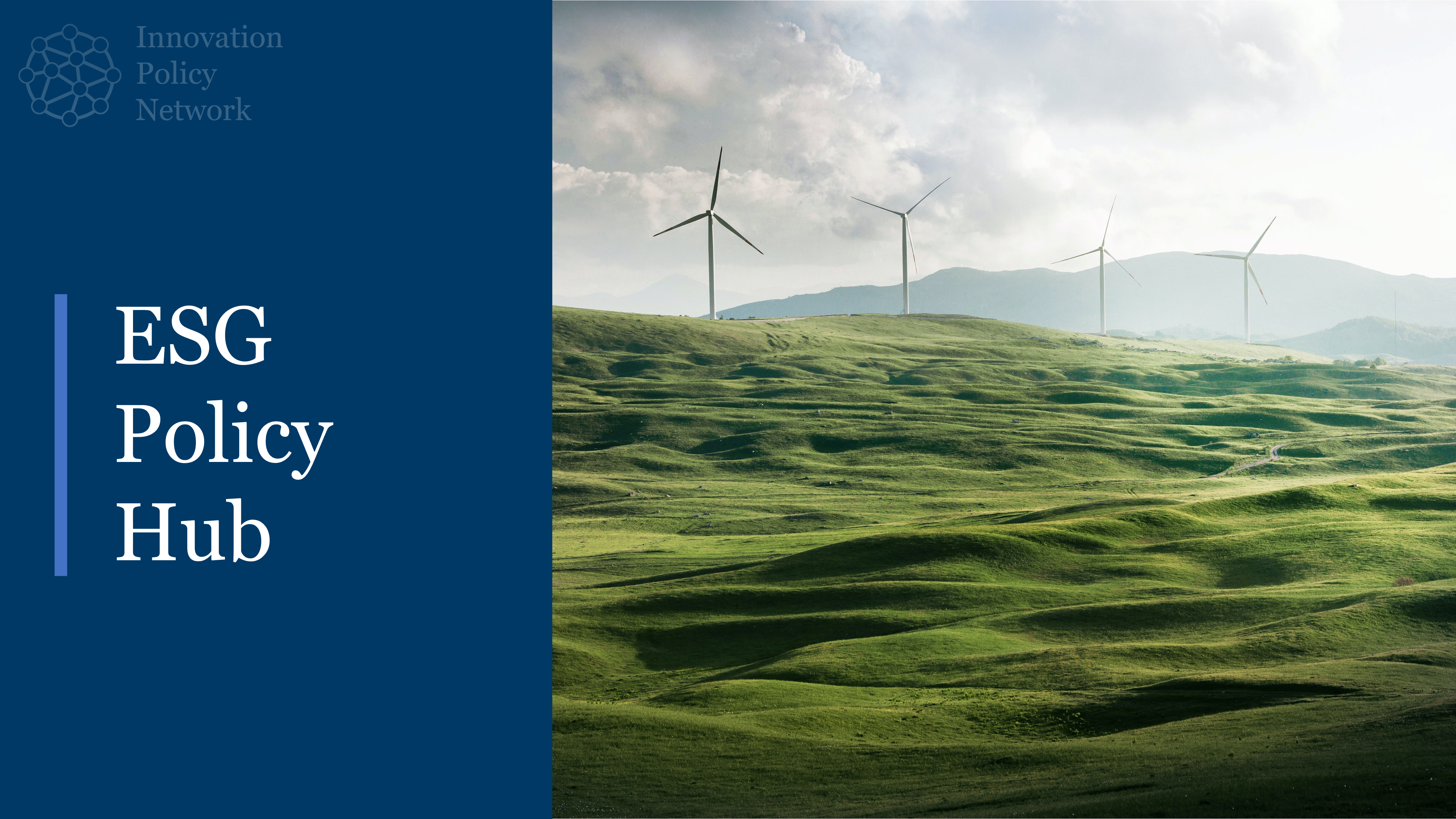The role of the Environment, Social and Corporate Governance (ESG) goals in innovation is pivotal in shaping the future of technological advancements and business practices. Innovators are increasingly recognizing the imperative to develop solutions that not only drive economic growth but also address environmental challenges and promote sustainability. Sustainable innovation involves creating products, services, and systems that minimize their impact on the environment, conserve resources, and contribute positively to social and economic well-being. This approach not only aligns with global environmental goals but also opens up new market opportunities, enhances corporate reputation, and fosters responsible business practices. Embracing environmentally conscious innovation is essential for building a resilient and sustainable future that meets the needs of the present without compromising the ability of future generations to meet their own needs.
The ESG Policy Hub studies the strategies that countries and firms towards the environment and sustainability, including national legislation, international proposals and recommendations to involved actors.

Areas of Analysis
Regulatory Frameworks: Explore the effectiveness of environmental regulations, crucial for fostering a regulatory environment that encourages responsible business conduct and ensures the sustainable use of resources.
Corporate Sustainability Strategies: Investigate how businesses formulate and implement sustainability strategies to align economic growth with ecological and social responsibility, fostering a culture of innovation and resilience.
Circular Economy and Waste Management: Delve into policies promoting circular economy models, which are instrumental in minimizing waste and fostering sustainable practices across industries, driving innovation in resource management.
Renewable Energy Adoption: Study policies incentivizing the shift to renewable energy sources, contributing to the reduction of carbon footprints and fostering innovation in the transition to cleaner and sustainable energy solutions.
Biodiversity Conservation: Assess the effectiveness of policies aimed at biodiversity conservation, recognizing its critical role in maintaining ecosystems and biodiversity, key components of a sustainable and resilient environment.
Social and Economic Impacts of Sustainability Policies: Examine the societal and economic implications of sustainability policies, recognizing their role in creating a balanced and sustainable socio-economic landscape that encourages innovation in responsible business practices.
Corporate Reporting and Transparency: Evaluate corporate reporting and transparency, critical for fostering trust, accountability, and informed decision-making. Transparent reporting contributes to the continuous improvement of sustainable business practices and innovation.
Green Innovation and Technology: Explore policies stimulating green innovation and sustainable technologies, driving advancements that address environmental challenges and contribute to sustainable development and innovation.
Cross-Sector Collaborations: Examine policies promoting collaborations across sectors, fostering a holistic approach to sustainability. Collaborative efforts drive innovation and address complex challenges through combined expertise and resources.
Consumer Behavior and Sustainability: Investigate the impact of sustainability policies on consumer behavior, recognizing the role of informed consumer choices in driving businesses towards sustainable practices and fostering innovation in product development.
Hub Coordinators

Jacob Margolis
Hub Coordinator
Members

Nadia Grutter
Research Fellow

Carol Wang Ziyuan
Research Fellow

Hikaru Hayakawa
Research Associate
Research Activities
Carbon Policies | Environmental Taxation
